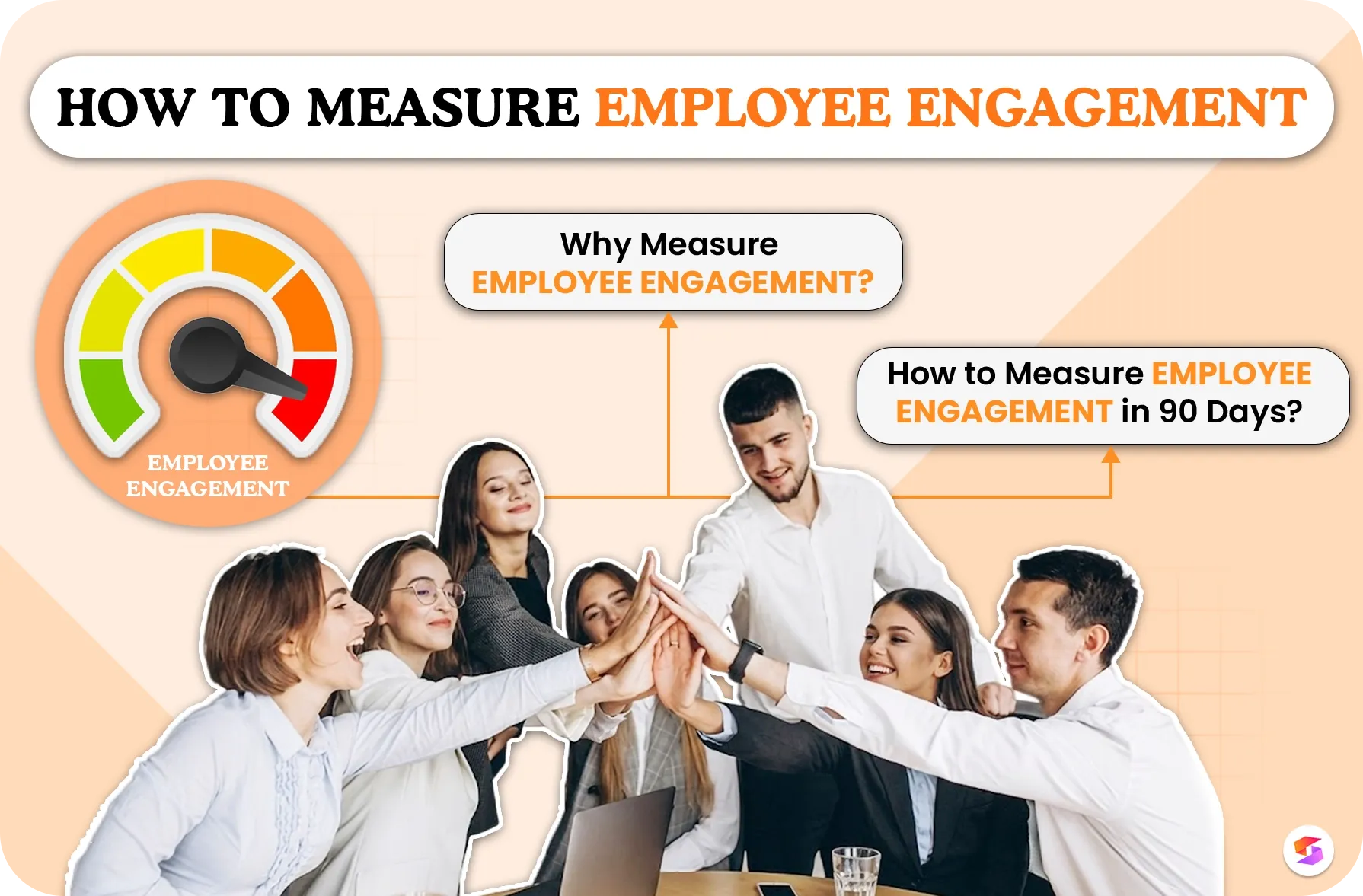76% of job applicants said that not hearing from an HR after their job interview is worse than not receiving a call back from a first date. That sums up the importance of candidate expectations in the modern recruiting process.
Recruiters, just like how you develop an ideal candidate’s persona for a specific job role before beginning your hiring process, candidates too have a checklist of expectations that they want you to meet. However, data indicates that we haven’t been as successful as we should be in seeing through the basic needs of candidates. As per LinkedIn,
- 60% of candidates don’t complete their application because of a lengthy process.
- 58% of candidates turn down offers due to bad candidate experiences.
Well, you can ensure positive candidate experiences, but for that, you would first need to evolve into a modern recruiting unit. "Why so?" you ask. A significant recruitment challenge many senior recruiters face is that they are still bound by the complexities of traditional recruiting practices. Not long ago “a job that paid well” was a considerable factor for job seekers to apply for job posts, but today the millennials and Gen Z demand more. For instance, 75% of candidates look for an employer’s brand even before they hit the ‘apply’ button.
As, talent shortage dawns upon us, it’s really important that we put aside our - “we are the employers, why should we be considerate?” hat and try to understand what candidates expect. Read this blog to understand why candidates' expectations shouldn't be ignored if you are hell-bent on building a workforce to win the future.
Why Does Candidate Expectation Matter?
We can define candidate expectations as the hopes and requirements that job seekers have from recruiters during the hiring process. These can range from a sneak peek into the company culture to comprehensive details about job responsibilities and compensation, to name a few.
You may say, "Okay, cool. But why should any of this matter to us?"
Let's understand with an example-
Today, 77% of job seekers consider company culture as an important factor before accepting an offer. So, in a way, candidates expect you to share about your culture. What happens if you don't? Well, don't be startled, but 50% of candidates abandon applications if their expectations aren’t met. So, in case, you don't want to lose top talent, you better kneel to the candidate's reasonable demands. LinkedIn, in a study, concluded that 64% of talent acquisition specialists believe that the future of recruiting will be candidate/employee driven as opposed to employer/recruiter. The reason for such a shift can be attributed to the Great Resignation.
In the late 2020s,
- 47 million Americans voluntarily put down their papers - this was a never-before-seen workforce exit. Today it’s called the Great Resignation.
- From employee burnout to corporate culture, feeling undervalued and job insecurity, several reasons pushed these employees to quit their jobs.
It was after the Great Resignation that recruiters and HR managers realized that ESOPs and hefty pay aren't enough to retain your top talent. With an instant talent shortage in the market after the resignations, recruiting began to see a shift, and providing a great candidate experience became a necessity for recruiters. In fact, by delivering a positive candidate experience, companies can see an increase in recommendation rate by up to 70%.
With a combination of tailored recruitment strategies, engaging employer branding, and an effort to meet candidate expectations, recruiters can witness a 28% decrease in turnover; an important recruiting KPI for sustainable workforce management.
Aren't these enough reasons to convince you to be cognizant of candidates' expectations? Yes? In that case, continue reading to find out what exactly candidates expect from recruiters and employers.
Common Candidate Expectations
A Complete Job Description
- One survey drew that as much as 67% of candidates preferred to know the offered salary before applying for a job. The same report showed benefits, location and employee feedback at 63%, 59% and 32% respectively, being some of the key information that job seekers prefer knowing.
- A job description that’s developed from the perspective of the candidate includes every detail an applicant needs to make an informed decision. It not only entails the specifics about the job role, employer expectations, duties and skills required, but also insights about the company’s work culture, fringe benefits and answer to the most important question of all – why should they choose your organisation?
- As much as a detailed JD helps the candidate, it also assists the recruiter. How? With a comprehensive understanding of the job, top candidates can be more confident to apply while ones in a conundrum can choose to opt out. This way you have a tailored pool of qualified talents.
An Active Online Presence
17% of candidates prefer to conduct their own research before applying for open roles or moving ahead in the interview process.
As much as you believe that a call or lengthy email detailing everything about the company will do the job, a candidate will certainly browse through your employee reviews on Glassdoor and check social media updates to witness, first-hand, if the workplace is right for them.
Today, candidates expect you to have a strong employer brand, and that demands an updated online presence with more focus on culture and diversity. From social media to an updated website and engaging video content, companies can use multiple online mediums to showcase their achievements, employee experiences, and dynamic culture.
With this practice – candidates get to know you up close.
We must also understand that an active online presence allows for better communication and engagement with potential applicants. Besides, it comes in handy for sourcing passive candidates.
Transparent Communication Between Job-seekers And Recruiters
With 81% of candidates emphasising the necessity of transparent and timely communication during the hiring process, it’s evident that to build trust and facilitate a seamless hiring journey, recruiters must communicate clearly and punctually.
There are several things that recruiters can practise to not make communication a barrier for applicants.
- One of the things to start with is a quick response to applications. No, we are not asking you to do it manually, there are several ways to automate the initial email triggers upon an application.
- You must also constantly inform the candidate about what to do next, as 32% of candidates expect to know, beforehand, the next steps in the recruitment process.
However, remember that top applicants may sometimes still choose to be more inclined towards the employer of their choice. That doesn’t always mean that your communication didn’t translate.
Be More Accessible
- After a friend’s recommendation (32%) and active outreach from HR or hiring manager (31%), it’s staffing agencies (24%) that job seekers approach to look for open opportunities.
- Furthermore, career pages (28%), social media (31%), and job search websites (48%) are the most common destinations for applicants to learn more and communicate with the employer.
Many times, the right candidates aren’t the ones who reach you instantly but the ones who do good research before approaching you. This communication can come from a recruiting agency, a social media DM, or an application via a career page. To discover top talents, you must be reachable.
Two-way Feedback
Where on the one hand, a two-way feedback assists the applicant in learning more about their overall performance and areas for improvement, which can aid in their future job search prospects, recruiters also get a refreshing perspective on developing better candidate experiences. It can help you further refine your recruiting strategies, maybe try proactive recruitment or creative approaches to recruitment.
A mutual exchange of feedback, specifically towards the end of the recruiting process, builds trust and keeps the door open for future opportunities. A two-way feedback is the backbone of a positive hiring experience ailing to better coherence between potential employee and employer.
Work-Life Balance
An overwhelming 72% of job seekers prioritized work-life balance as a prominent factor in making the final decision to join an organization.
- Today, candidates value organizations that offer a greater work-life balance, some even consider it more important than a better salary offer. This puts the spotlight on the recruiters as candidates seek employers who understand and support their need for a harmonious integration of work and personal life.
- You must be transparent about aspects like paid time off (PTO), remote work flexibility, and other work-life-related policies. If there aren’t any, this blog is your signal to create one and have it approved by the decision-makers.
- When you are able to clearly inform the candidates about these benefits (or a lack of them), it makes a significant difference in attracting and retaining quality candidates.
- Providing additional information like business travel arrangements, RV rentals for off-site events, team-building activities, and wellness programs, can take the process a step further and enhance a candidate’s perception of the company.
- If the company has a strong employee-focused culture, you can use it to your advantage by introducing current employees to potential candidates. It can offer the candidates valuable insights into the company culture and how it supports work-life balance.
By being open about work-life balance, you can improve the recruitment process and ensure candidates feel informed and valued, which equals good hires.
End Note
To tackle the challenges of modern-day recruiting, one must first understand the needs and expectations of the candidate. In a candidate-driven job market, top job-seekers demand more than fringe benefits and husky salary. Use the insights shared in this blog, and think from a candidate’s perspective to tune your recruitment strategy in accordance with candidate expectations.
On a different note,
- If finding quality hires is your top priority, you may want to check Skima AI, which helps you screen resumes at scale and find the best matching candidate for your vacancies all in a matter of clicks.
- If you liked reading this blog, give us a follow on LinkedIn to not miss any future recruitment-focused blogs. Alternatively, subscribe to the Skima AI blog.
All the best!



